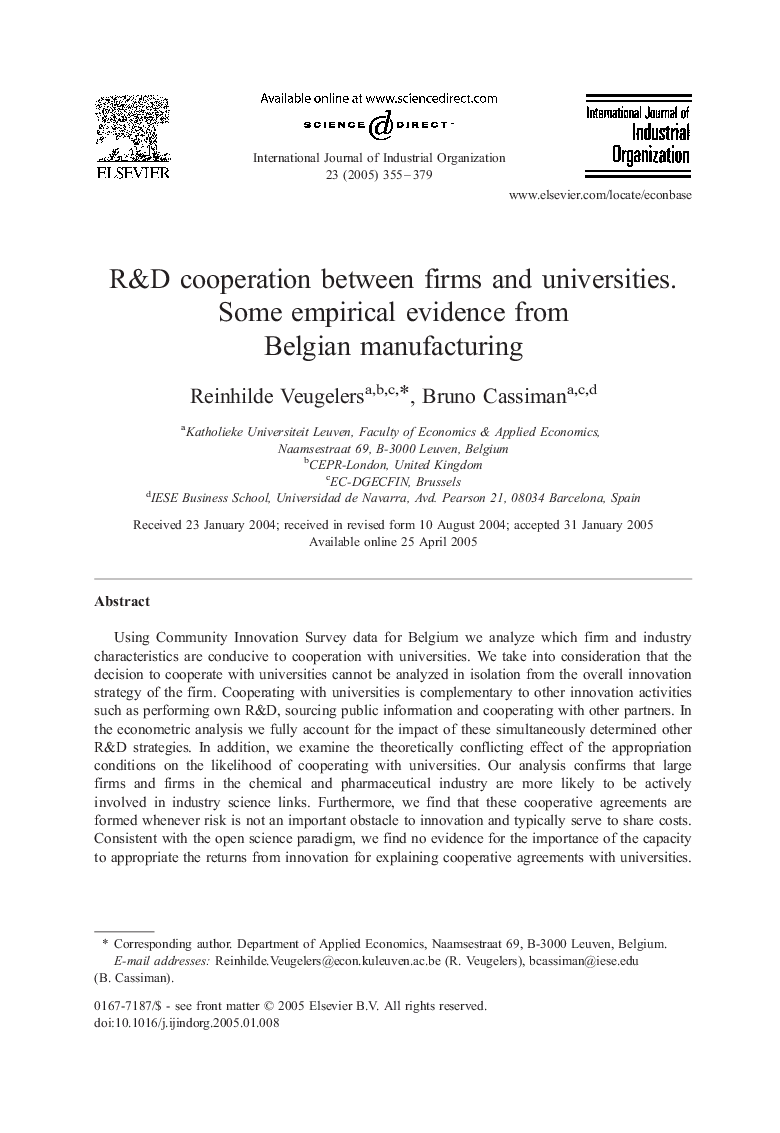| Article ID | Journal | Published Year | Pages | File Type |
|---|---|---|---|---|
| 9724492 | International Journal of Industrial Organization | 2005 | 25 Pages |
Abstract
Using Community Innovation Survey data for Belgium we analyze which firm and industry characteristics are conducive to cooperation with universities. We take into consideration that the decision to cooperate with universities cannot be analyzed in isolation from the overall innovation strategy of the firm. Cooperating with universities is complementary to other innovation activities such as performing own R&D, sourcing public information and cooperating with other partners. In the econometric analysis we fully account for the impact of these simultaneously determined other R&D strategies. In addition, we examine the theoretically conflicting effect of the appropriation conditions on the likelihood of cooperating with universities. Our analysis confirms that large firms and firms in the chemical and pharmaceutical industry are more likely to be actively involved in industry science links. Furthermore, we find that these cooperative agreements are formed whenever risk is not an important obstacle to innovation and typically serve to share costs. Consistent with the open science paradigm, we find no evidence for the importance of the capacity to appropriate the returns from innovation for explaining cooperative agreements with universities. Finally, the results are consistent with complementarity of these agreements with other innovation activities.
Keywords
Related Topics
Social Sciences and Humanities
Economics, Econometrics and Finance
Economics and Econometrics
Authors
Reinhilde Veugelers, Bruno Cassiman,
